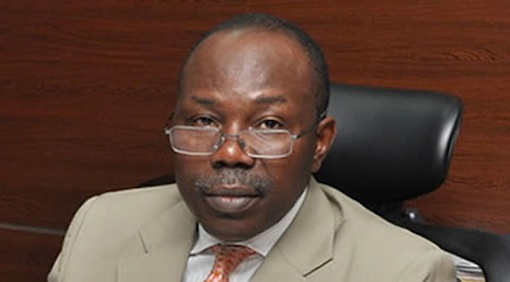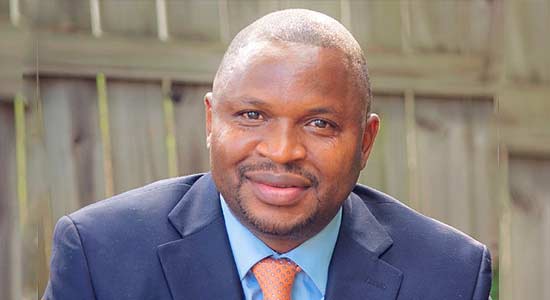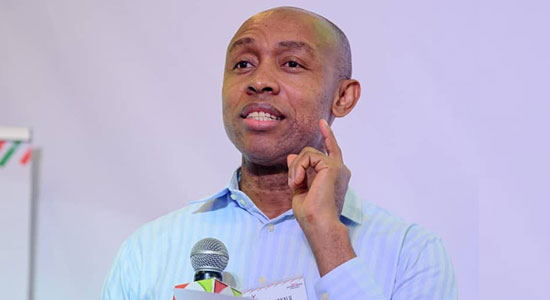Another Look At Political Parties’ Primaries (2)

We must examine where we are coming from and look into our future. The Yoruba say, “Ti omode ba subu a wo iwaju, ti agba subu o maa wo ehin”. When a child stumbles, he looks back to see the stumbling block, while an elder looks ahead to prevent another fall. This is the crux of my engagement in this column.
Except the thoughts expressed by my friend, Dakuku Peterside, I have not stumbled on any retrospective analysis of the political parties’ primaries.
Much of what I have read are fulsome praises for the winners and the vilification of the losers and, in some instances, words of encouragement to heal the wounds of electoral contests to forge stronger unity for the parties. I would rather scrutinize the past and the present, in order to pave way for the future. Gbogbo wa o le sun ka ko ori si ibi kan naa. We all cannot be thinking in the same way. For those that have followed my political movements in the last two decades or thereabouts, it would have been noted that my engagements have been largely on the issue of internal democracy. It is a passionate battle that I have consistently fought with the various godfathers in the political parties I found myself in then. In fact, it was the main battle that made me exit the ruling party in July 2018 and politics generally. Therefore, seeing the latter-day crusaders of internal democracy in action gladdens my heart.
Most of those that have enjoyed the fruits of the internal democracy struggle today are never apostles of it. In their various domains, they frustrate the process and allow no free will in the nomination of candidates. Pardon my getting a bit personal: throughout my membership then of APC, as remarked above, one battle of my life I fought throughout was that of internal democracy. Those at daggers drawn with me then are now converts. As they continuously chorus internal democracy in the agitation for the party ticket, I marvel, laugh and smile! How easy for human beings to summersault when their personal interests are at stake. One can then imagine seeing this happen in one’s lifetime, regardless of the associated inadequacies, what the feeling would be. Anyway, as Chinua Achebe puts it in his book, Things Fall Apart, the lizard that jumps from the high iroko tree says if no one praises it, it will praise itself. I take the liberty to, therefore, commend and appreciate my efforts in this regard. At the risk of being Oliver Twist, I demand similar gratitude from all the numerous beneficiaries of the internal democracy practice in the various political parties. I humbly declare myself as the ‘super delegate’ in all the political parties’ primaries. It is only hoped that they will not forget to give credit where it belongs. As I congratulate the various candidates across the parties again, I specially congratulate APC standard-bearer, Asiwaju Bola Ahmed Tinubu, with whom I have several affiliations. He is the greatest beneficiary of internal democracy during this electoral season. He fought for it, as he vehemently resisted the attempts to impose on him.
His democratic tendencies came out in full glare. He campaigned to delegates knowing that they were the ultimate determiners of this process. He moved round the various states of the federation. He became a champion of internal democracy all over the nation, appreciating it as the only route to his salvation in the ensuing milieu, as the powers that be wanted to use his original sword to kill him. The Yoruba would say “apani kan kii fe ki won mu ida koja ni ipako oun”. He who kills by the sword would detest a playful dangling of a sword behind his neck. My expectation, prayer and plea, therefore, to him is that he transplants this lofty struggle for internal democracy to his political base and other territories of his influence. In doing so, I will plead with him to apply the same energy he deployed in his own personal struggle to our dear Lagos and his other spheres of influence to entrench internal democracy within the party and Nigeria. This is the greatest legacy he can bequeath to the democratic struggle in Nigeria. Sir, you have fought for internal democracy at the presidential level so as not to be guilty of selfish appropriation of the nomination process.
Charity must be made to start from home. As future elections approach, particularly the local government elections, let the party members have a sense of hope in internal democracy. Your emergence today must not be an end to becoming the President of Nigeria but a means to an end of entrenching democracy in our body polity. Just as I have always said, it is through internal democracy that we can discover genuine leaders of the people. Political parties grow and get strengthened when party members are expressly allowed to pursue their ambitions in a free, fair and transparent process. This is the ultimate lesson I want us to draw and an admonition to all leaders. With this, I progress into the other segment of our discourse, which is the further diagnosis of the political party primaries and the prognosis therefrom. The first area of concern is the process of emergence of the so-called delegates used in the determination of the party candidates where the indirect mode of nomination, as highlighted above, has been adopted. In a lot of the party primaries in which indirect method was adopted, no proper election of delegates in line with the law ever took place. Rather than the delegates being elected for the purpose of the nomination, appointment of the delegates was what substantially took place.
The process by which the majority of these delegates emerged was what the political parties called consensus method in which all the members of the political party ought to agree on some members of the party to be delegates, whereas such purported consensus is nothing short of imposition and is not in compliance with statutory provisions and regulations. In a proper consensus situation, affirmation would still be required, which never took place, particularly in the ruling party that is a familiar terrain to me. It is largely the failure to adhere to the basic democratic tenets that probably accounts for the quality of delegates that emerged, ultimately, and, by extension, the quality of candidates at all levels that surfaced in the various political parties. This explained, as remarked above, the presence of the vulnerable lot in the comfortable majority as delegates at the conventions of most political parties and whose fortunes improved significantly with the amounts their consciences were purchased at the primary elections. Now that the candidates have emerged, I notice, as usual, grumbling in town, particularly on the social media, about the quality of candidates that have emerged in the various political parties from which the electorate must now pick one. In several fora and engagements, I have warned against this eventuality but now the reality has dawned on Nigerians.
You simply do not have a choice than to pick one of the candidates. Accept my sympathy in this regard. From this lesson, we must, therefore, learn how to partake directly or indirectly in the affairs of the political parties. Certainly, it is not compulsory that one must contest election in the political parties but a few good ones among us in the political parties can make a significant difference through the participation in the affairs of the various political parties. As at date, there is a huge deficit of good people in the various political parties. The larger percentage of the composition of the political parties membership is made of the Ojelus, who have nothing at stake in the polity than their survival; this is as opposed to the Oselus, who are in the extreme minority and out for public good. From my experience, we do not need beyond 10 per cent good people to populate the space before we reap bountiful rewards from the system. We need to dilute the terrain with at least a sizeable percentage of good people. It is upon the occurrence of this that the political parties can play the vital role of presenting us quality candidates.
The net effect will then be the emergence of substantially informed delegates who can take sound decisions.
This, to a large extent, will reduce the impact of money in the nomination process. The emergent delegates then will neither be charlatans nor scavengers. Proper delegates who then emerge can, even without any formal presentation from the aspirants, research into the pedigree and competence of each one of the aspirants, in deciding who to support for the candidature of the party. Most of the paraded delegates in this last exercise knew next to nothing about the pedigree or competence of the aspirants they voted for. This is the disaster that unveiled during the last political parties’ primaries. To avert this in the future, we must shore up the process of the nomination of delegates.
Not only must the process be strengthened but proper monitoring of the process must be carried out. By the law today, the Independent National Electoral Commission is meant to monitor the level of compliance and adherence to the processes stipulated for the emergence of candidates, amongst others. Regrettably, except in some few States of the federation, there is absolute dereliction of duty in this regard. I give kudos to the Akwa Ibom State Resident Electoral Commissioner, Mr. Mike Ighini, a forthright comrade, amongst others, that have dutifully done the job well, in this regard. Mike Ighini, well done and keep it up. Beyond the foregoing, where such dereliction is discovered, it is advisable that the products of such abhorrent process be challenged.
Whenever such occurs, let the affected aspirant(s) pick up the battle. At the barest minimum, even if at worst the aspirant did not succeed, I can assure you that the sacrifice would have yielded the fruit of sounding note of warning in the future to the perpetrators. This is one way to tame the impunity in the political terrain. Through this, we can upset some of the cases of imposition which will serve as deterrent to the violators, the political parties. The combination of all these, hopefully, will ground the required improvements necessary for the future. Last but not the least is the continuous need for the proper structuring of the political parties. Where this is in place, capacity development of the party members becomes a must. To this extent, propriety of processes can then be taken for granted. This is the way to go!



